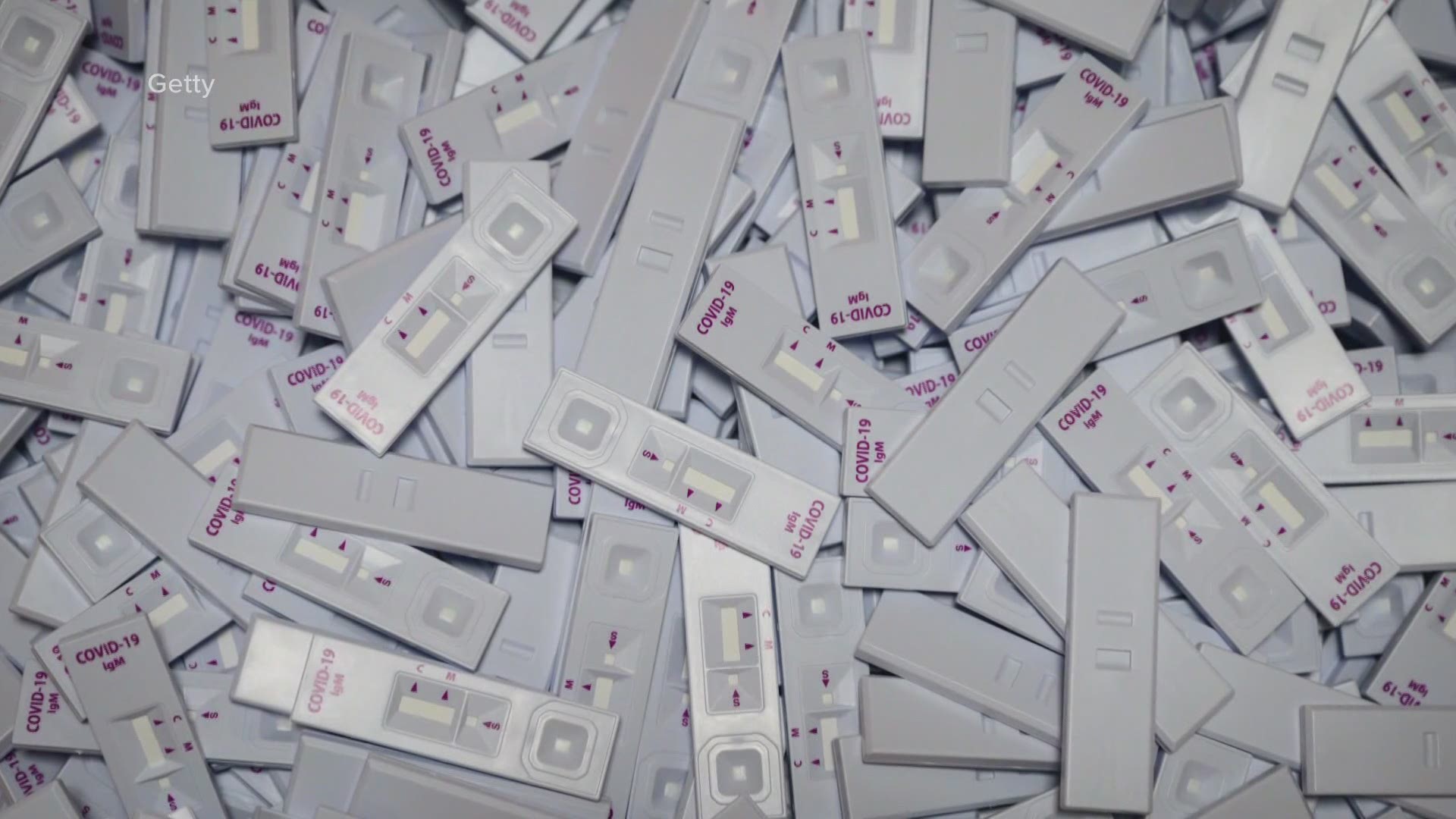Michigan is now the sixth in the nation for highest number of COVID-19 cases and fifth for deaths.
In a press conference on Wednesday, the Michigan Department of Health and Human Services said the case rate has raised 425% since Oct. 1 and is is up in all areas demographics of age, race and ethnicity.
Nationally, Michigan has the 20 highest case rate and tenth highest death rate in the past seven days. Within the state, Grand Rapids has the has the second-highest average percent positivity at 14.2%, trailing behind Kalamazoo at 15.1%. All Michigan Economic Recovery Council (MERC) regions have reached or are above 350 cases per million.
"Local health is currently investigating 980 outbreaks in these different settings," Dr. Sarah Lyon-Callo, Director of the Bureau of Epidemiology and Population Health for MDHHS, said, " This is the highest number of outbreaks that we've recorded."
Lyon-Callo said new outbreaks are rising particularlyin long-term care facilities, schools and sports, in-person workplaces, and restaurants and bars. However, she added some outbreak locations, like schools, are easier to identify than others, like restaurants.
In Michigan hospitals, more than 15% of available inpatient beds are filled with COVID-19 patients. According to Becker's Hospital Review, this gives Michigan the 10th highest hospitalization rate in the nation and the sixth highest number of COVID-19 patients in the ICU.
While there has been a concern for capacity at hospitals, North Ottawa Community Heath System explained they're biggest concern isn't having enough beds, it's having enough staff:
“Hospitals are adept at planning for crises. But these are extraordinary times. Fortunately, in this region, we’ve had the benefit using the last several months to learn from what’s happened elsewhere, and refine our plans for the surge we knew was likely to happen here. The most significant challenge we and other hospitals are facing right now is staffing. Having enough beds is not the issue. Having enough staff to care for the rising number of patients needing hospitalizations, is. Our hospitals don’t normally care for this many people, at once, for this long. We can’t pull staff from neighboring communities because they are all in the same boat. When you add the inevitability of staff illness, which means they can’t work, then things get very serious, very quickly. We are holding our own now, with all services open and safe, but the trajectory is tremendously concerning. That is why all of us are appealing to the public for help. We need to get hold of this. Please socially distance, keep your bubble small, wear a mask, wash your hands. And understand that our strength to care for COVID and all other medical issues directly depends on your personal responsibility. We need you," NOCHS said in a statement.
The MDHHS said the pandemic is also indirectly impacting things such as childhood preventative services, as well as Emergency department visits, EMS use for opioid overdose and mental health.
"Vaccinations did fall during the spring time, but are rebounding," Lyon-Callo said, "Its important for people to understand that they can go to the emergency department if they need to. it's very important source of care."
For a full look at MDHHS COVID-19 updates, click here.
RELATED VIDEO:
►Make it easy to keep up to date with more stories like this. Download the 13 ON YOUR SIDE app now.
Have a news tip? Email news@13onyourside.com, visit our Facebook page or Twitter. Subscribe to our YouTube channel.


